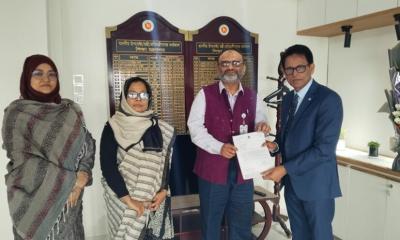The James Webb Space Telescope has peered through cosmic dust to reveal new details and a stunning image of a rare type of galaxy.
The space observatory's latest image shows the Cartwheel galaxy, a ring galaxy located 500 million light-years away that formed when a large spiral galaxy and a small galaxy violently collided.
When galaxies collide, they can change in shape and structure. In the Cartwheel galaxy, which looks a bit like a wagon wheel, a colorful ring surrounds an even brighter inner ring -- both of which expand away from the heart of the collision, as depicted in the Webb image.
Astronomers have gleaned new insights about individual stars and star formation within the chaotic galaxy, as well as the black hole at the galactic center, as a result of Webb's capabilities.
The new image reveals more about how the galaxy has evolved over billions of years.
Among the hot dust in the bright inner ring, giant young clusters of stars are forming, the image shows.
Meanwhile, the outer ring has been expanding for 440 million years, and it's where star formation and star death (in the form of supernova explosions) occur. As the ring expands, it collides with gas, triggering more star formation.
Two small companion galaxies also appear in the image.
The Hubble Space Telescope and other observatories have studied the Cartwheel, but accumulations of dust have obscured the galaxy's mysteries. Webb is an infrared telescope, viewing the light that is invisible to the human eye, which is why it was able to capture new details other instruments could not.
The new image is a composite of data collected by Webb's Near-Infrared Camera and Mid-Infrared Instrument and captures a moment in time as the Cartwheel continues to slowly transform.
The Webb telescope officially began scientific operations on July 12, the same day NASA released its first images, and more images are on the way in the coming weeks, according to the space agency.




-20260222063838.webp)




-20260206050656.webp)



























